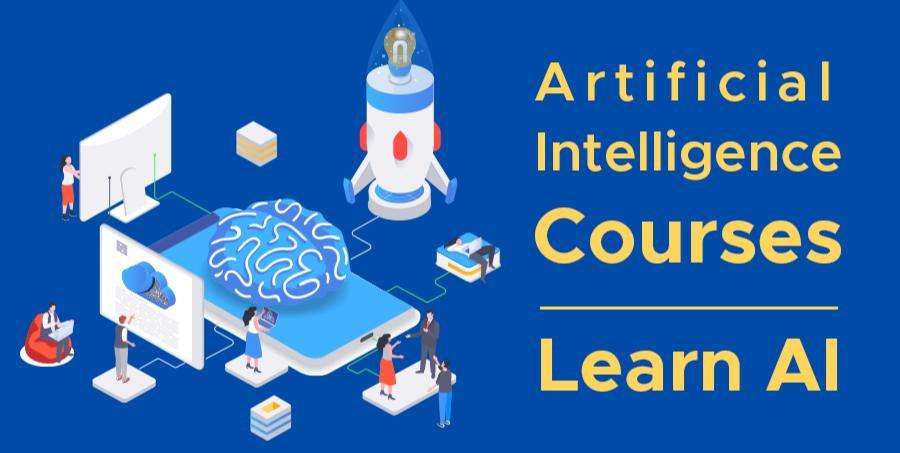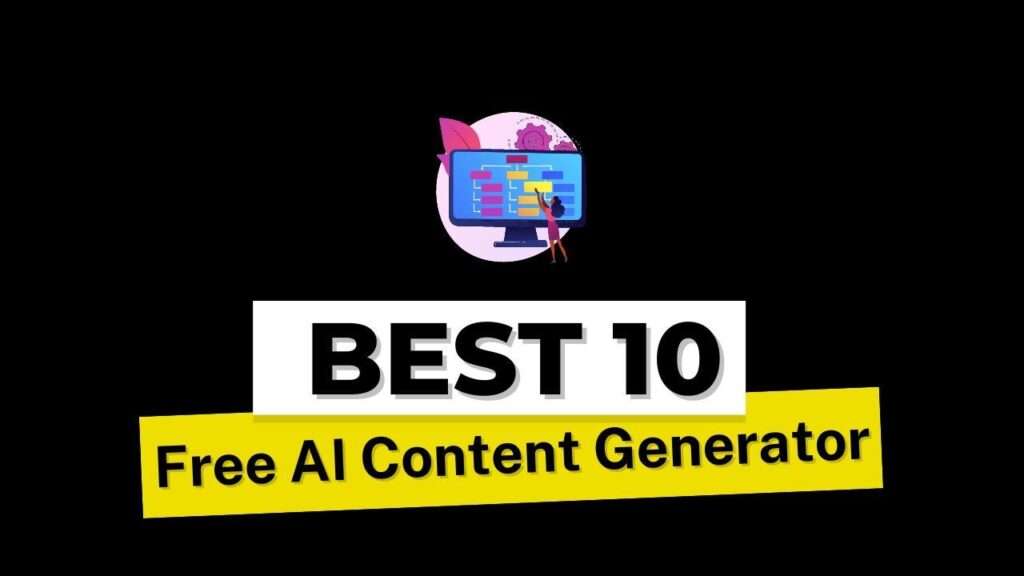
Are you interested in learning AI, but don’t know where to start? Do you feel overwhelmed by the plethora of tools and frameworks available for AI development? Do you want to create awesome AI projects without spending hours on coding and debugging?
If you answered yes to any of these questions, then this blog post is for you.
In this post, I will show you the best AI tools and frameworks for beginners that will help you master AI in no time. These tools and frameworks are easy to use, powerful, and versatile, and will enable you to build AI applications for various domains and purposes.
But before we dive into the tools and frameworks, let’s first understand what AI is and why it is important.
What is AI and Why is it Important?
AI, or artificial intelligence, is the branch of computer science that deals with creating machines or systems that can perform tasks that normally require human intelligence, such as reasoning, learning, decision making, natural language processing, computer vision, and more.
AI is important because it can help us solve complex problems, enhance our productivity and efficiency, improve our quality of life, and create new opportunities and innovations.
AI is also transforming various industries and sectors, such as healthcare, education, finance, entertainment, and more.
AI is not a single technology, but a collection of methods and techniques that can be applied to different problems and domains.
Some of the common AI methods and techniques are:
- Machine learning: The process of teaching machines to learn from data and experience, without explicit programming.
- Deep learning: A subset of machine learning that uses artificial neural networks to learn from large amounts of data and perform complex tasks.
- Natural language processing: The ability of machines to understand and generate natural language, such as speech and text.
- Computer vision: The ability of machines to perceive and analyze visual information, such as images and videos.
- Reinforcement learning: A type of machine learning that involves learning from trial and error, based on rewards and penalties.
- Generative adversarial networks: A type of deep learning that involves two competing neural networks, one that generates data and one that evaluates it.
To implement these AI methods and techniques, we need tools and frameworks that can help us design, develop, test, and deploy AI applications.
These tools and frameworks can simplify and speed up the AI development process, and provide us with various features and functionalities, such as data processing, model building, training, evaluation, visualization, and more.
The Best AI Tools and Frameworks for Beginners
There are many AI tools and frameworks available in the market, but not all of them are suitable for beginners.
Some of them may be too complex, too expensive, or too specific for certain use cases.
Therefore, I have selected the best AI tools and frameworks for beginners that are easy to use, affordable, and versatile.
These tools and frameworks are:
1. TensorFlow:
TensorFlow is one of the most popular and widely used AI frameworks in the world. It is an open-source framework developed by Google that allows you to create and run various types of AI models, such as deep learning, machine learning, natural language processing, computer vision, and more.
TensorFlow is flexible, scalable, and compatible with multiple platforms and languages, such as Python, C++, Java, and more.
TensorFlow also has a large and active community that provides support and resources, such as tutorials, documentation, courses, and more.
2. PyTorch:
PyTorch is another popular and widely used AI framework in the world. It is an open-source framework developed by Facebook that allows you to create and run various types of AI models, such as deep learning, machine learning, natural language processing, computer vision, and more.
PyTorch is dynamic, intuitive, and easy to debug, and supports multiple platforms and languages, such as Python, C++, Java, and more.
PyTorch also has a large and active community that provides support and resources, such as tutorials, documentation, courses, and more.
3. Keras:
Keras is a high-level API that allows you to create and run various types of AI models, such as deep learning, machine learning, natural language processing, computer vision, and more.
Keras is simple, user-friendly, and modular, and can run on top of other AI frameworks, such as TensorFlow, PyTorch, and more.
Keras also has a large and active community that provides support and resources, such as tutorials, documentation, courses, and more.
4. Scikit-learn:
Scikit-learn is a library that provides various tools and algorithms for machine learning, such as classification, regression, clustering, dimensionality reduction, feature extraction, and more.
Scikit-learn is easy to use, efficient, and compatible with other Python libraries, such as NumPy, Pandas, and more.
Scikit-learn also has a large and active community that provides support and resources, such as tutorials, documentation, courses, and more.
5. OpenCV:
OpenCV is a library that provides various tools and algorithms for computer vision, such as face detection, object recognition, image processing, video analysis, and more.
OpenCV is fast, robust, and compatible with multiple platforms and languages, such as Python, C++, Java, and more.
OpenCV also has a large and active community that provides support and resources, such as tutorials, documentation, courses, and more.
6. NLTK:
NLTK is a library that provides various tools and algorithms for natural language processing, such as tokenization, stemming, lemmatization, parsing, sentiment analysis, and more.
NLTK is comprehensive, easy to use, and compatible with other Python libraries, such as NumPy, Pandas, and more.
NLTK also has a large and active community that provides support and resources, such as tutorials, documentation, courses, and more.
These are the best AI tools and frameworks for beginners that I recommend you to use. They will help you learn and master AI in no time, and enable you to create awesome AI projects for various domains and purposes.
The Bottom Line
AI is an exciting and important field that can help us solve complex problems, enhance our productivity and efficiency, improve our quality of life, and create new opportunities and innovations.
AI is also transforming various industries and sectors, such as healthcare, education, finance, entertainment, and more.
To learn and master AI, we need tools and frameworks that can help us design, develop, test, and deploy AI applications.
These tools and frameworks can simplify and speed up the AI development process, and provide us with various features and functionalities, such as data processing, model building, training, evaluation, visualization, and more.
In this blog post, I showed you the best AI tools and frameworks for beginners that will help you master AI in no time. These tools and frameworks are easy to use, powerful, and versatile, and will enable you to build AI applications for various domains and purposes.
I hope you enjoyed this blog post and found it useful. If you have any questions or feedback, please feel free to leave a comment below. Thank you for reading and happy learning! 😊
RELATED ARTICLES
- The ethical challenges of developing and deploying AI systems
- How AI is transforming the healthcare industry
- The impact of AI on education and learning
- The Top AI 10 Research Projects and Breakthroughs of 2024
- The most common AI myths and misconceptions
- Artificial intelligence (AI) comprehensive Guide: Definition, How it works, Examples, Types and Applications









